Join us as we continue Part 2 of “What it means to be a Christian Classical School”. Be sure to check out Part 1 HERE.
Defining our Course of Study and what sets Classical Christian Education apart from a traditional classical school:
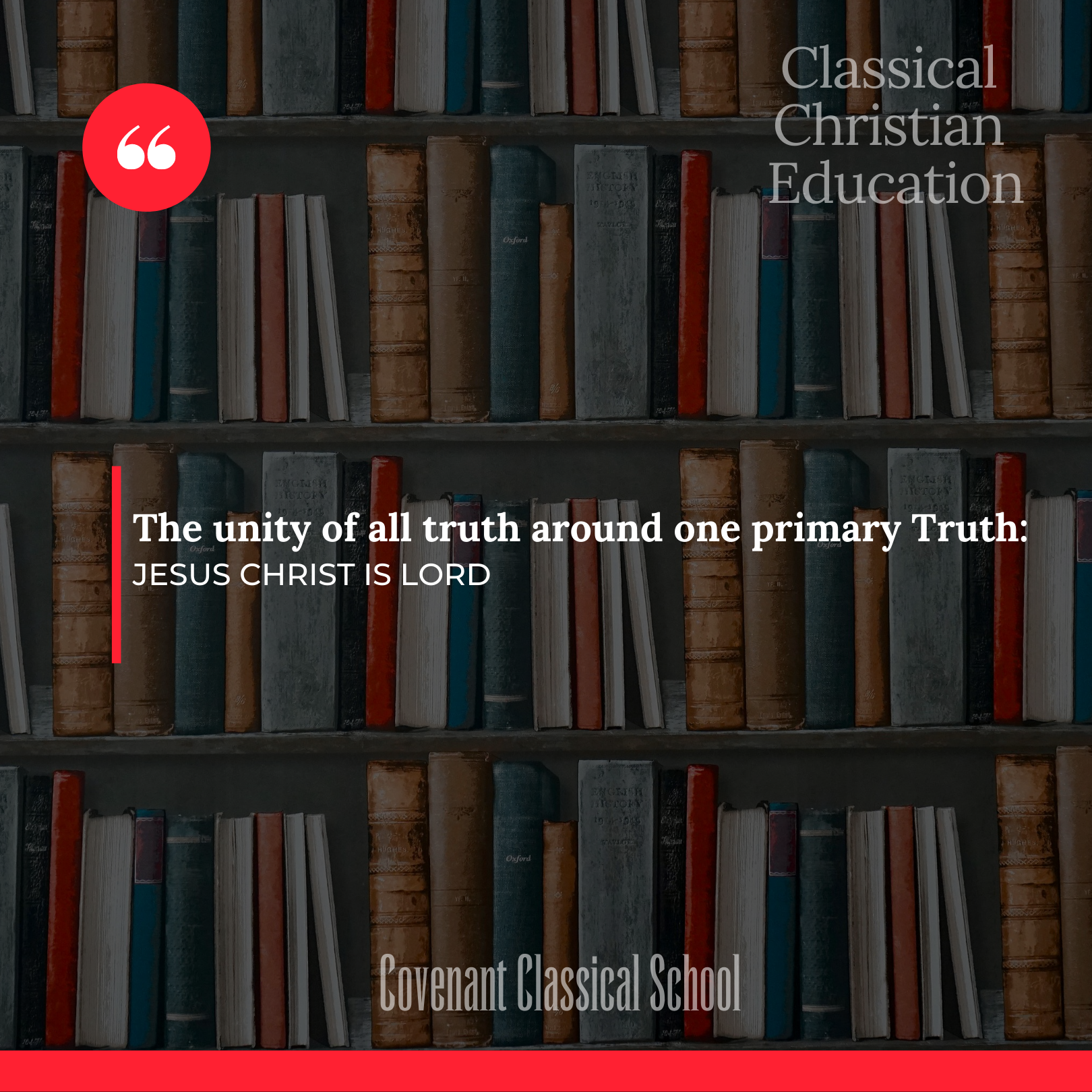
The unity of all truth around one primary Truth: Jesus Christ is Lord. From this, we study all of nature and history as God's workmanship. We study divinely ordered patterns of truth, goodness, and beauty, and apply them in our interactions with the natural world and with human history.
God's Word is our prime lens used to appraise all things, with a disciplined reason that unifies the faith of students with their worldview
We pursue language as a foundation of our education because words convey truth, chasten goodness, and express beauty; therefore, the study of language bears fruit for those who are masters of it. The mastery of language enables understanding of God's revealed and infallible Word, from which all truth emanates. God's Word is our prime lens used to appraise all things, with a disciplined reason that unifies the faith of students with their worldview.
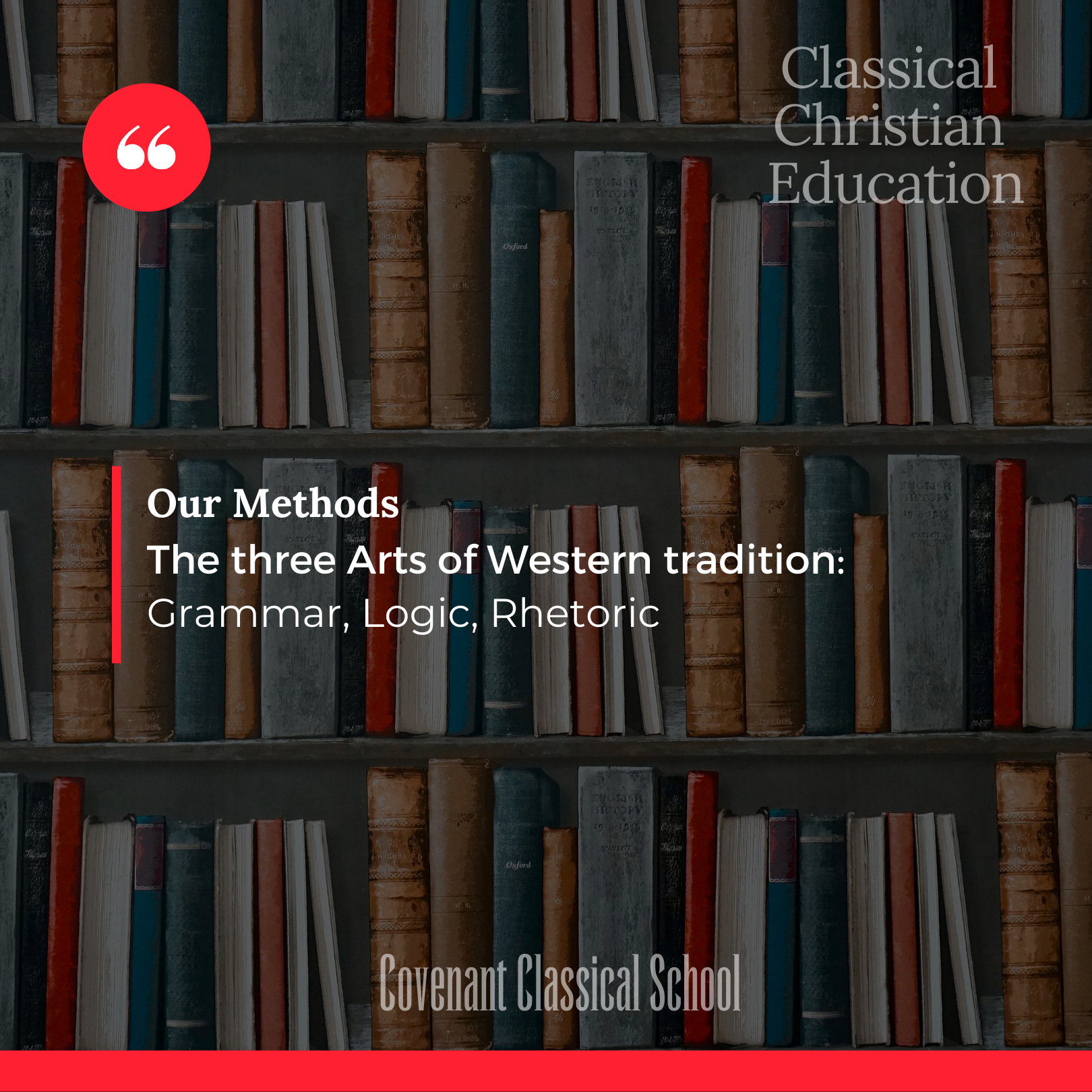
Our methods are derived from our understanding of the Trivium - the three Arts of western tradition. Classical Christian education is known for its academic rigor in the pursuit of knowledge, understanding, and wisdom.
In her famous essay, “The Lost Tools of Learning”, Dorothy Sayers observed that these arts, Grammar, Logic, and Rhetoric, were analogous to a child's natural development. CCE takes advantage of this observation and structures academic learning accordingly.
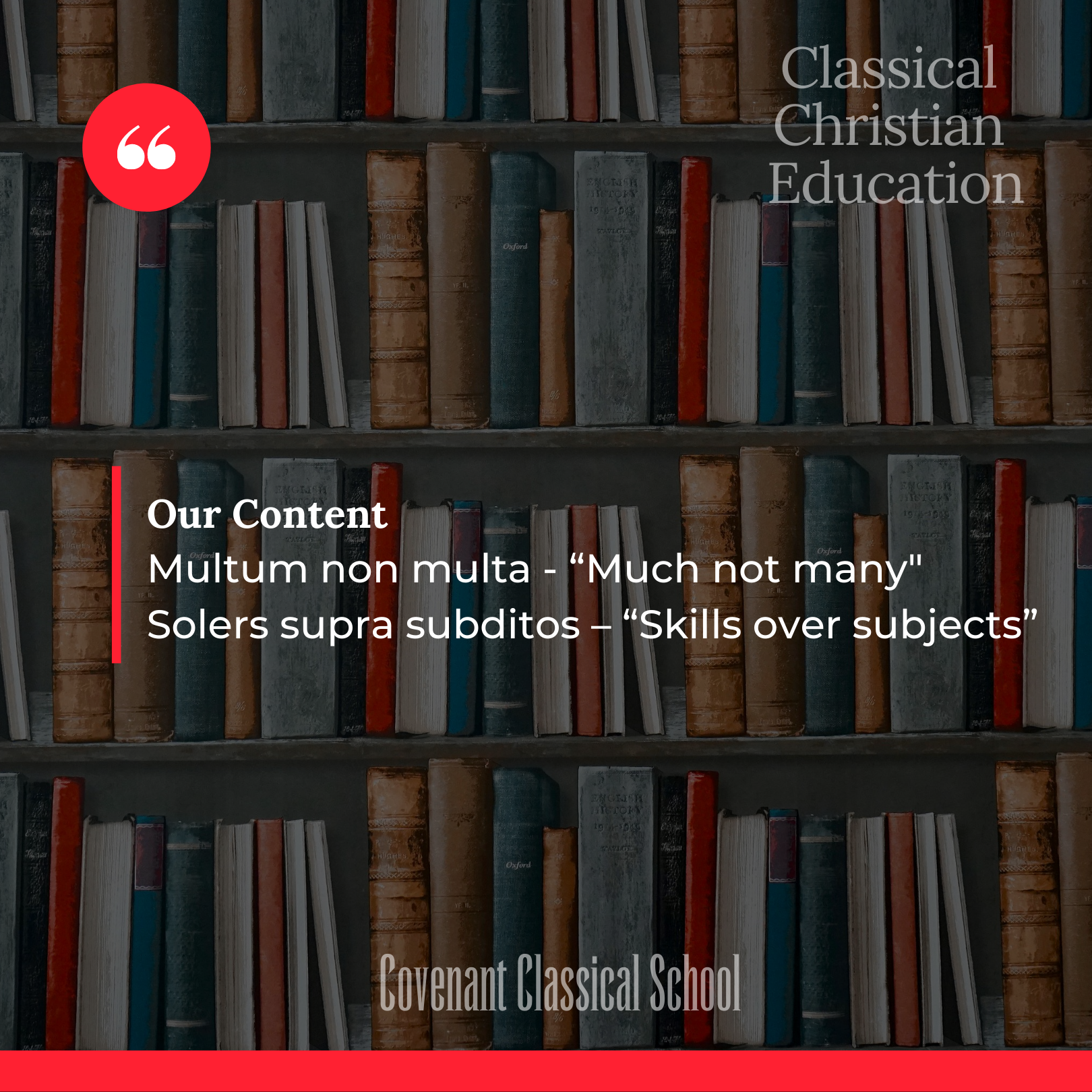
Two sayings highlight our perspective on course content: Multum non multa - much not many; and Solers supra subditos - skills over subjects.
Classical Christian Education focuses on students learning fewer things well. We instruct and guide our students with the goal of teaching them HOW to learn; HOW to think; HOW to communicate. In other words, the SKILLS of learning! This is why our courses have names that are different from those of the modern education system. Humanities, Logic, Rhetoric, Christendom, Modernity, Latin, Composition, etc. They reflect the emphasis on skills of learning rather than content.
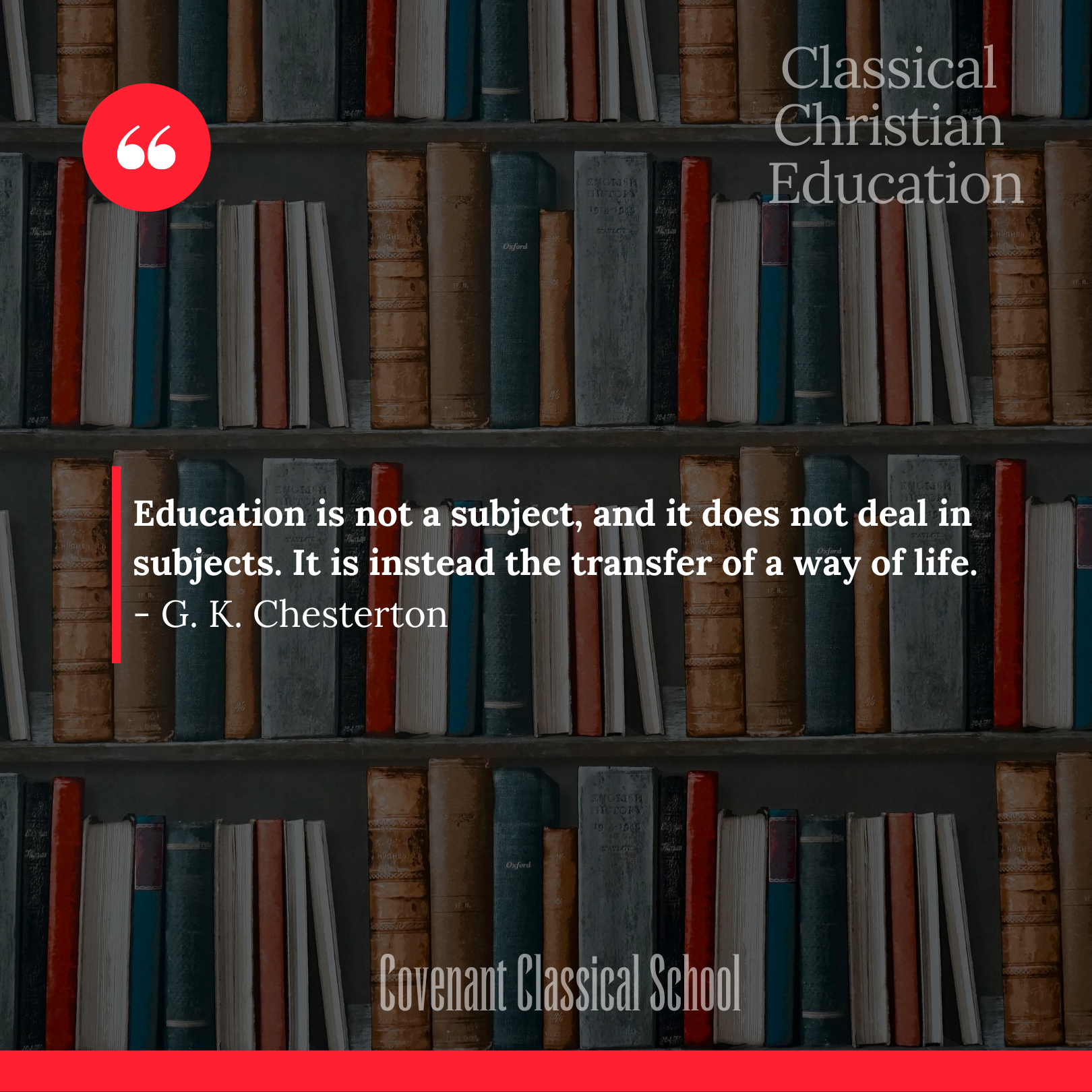
As G.K. Chesterton said, “Education is not a subject, and it does not deal in subjects. It is instead the transfer of a way of life.” Classical Chritian Education does not view subjects as an end in themselves; rather, we use "subject areas'' like English, History, Math and Science to practice the skills of learning and to cultivate virtue. We approach all learning with a love of knowledge (philosophy) that honors our love of God (theology), and we live these loves before our students.
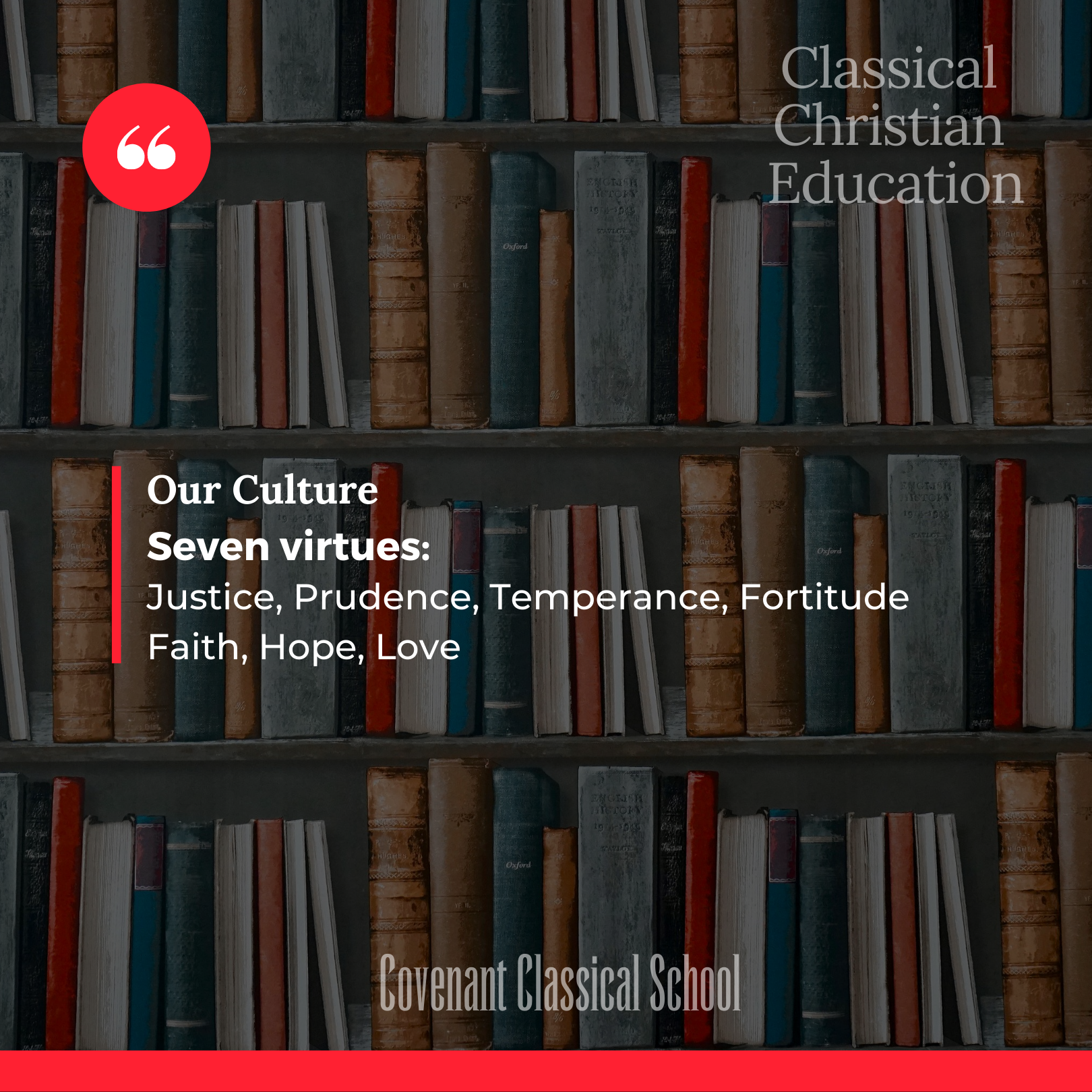
All of these distinctive features contribute to a markedly different school culture. “Culture" in its fullest sense is understood as “a way of life".
Because we start with a different purpose and strive for a different outcome, we are free to use our pursuit of academic excellence in order to purposefully pursue a culture of virtue in our school, for ourselves and our students.
We praise and pursue the four cardinal virtues and the three theological virtues that should mark a Christian community. To these, we add the many virtues taught in the Scriptures and exemplified in history.
It is within this culture that we can create true community.
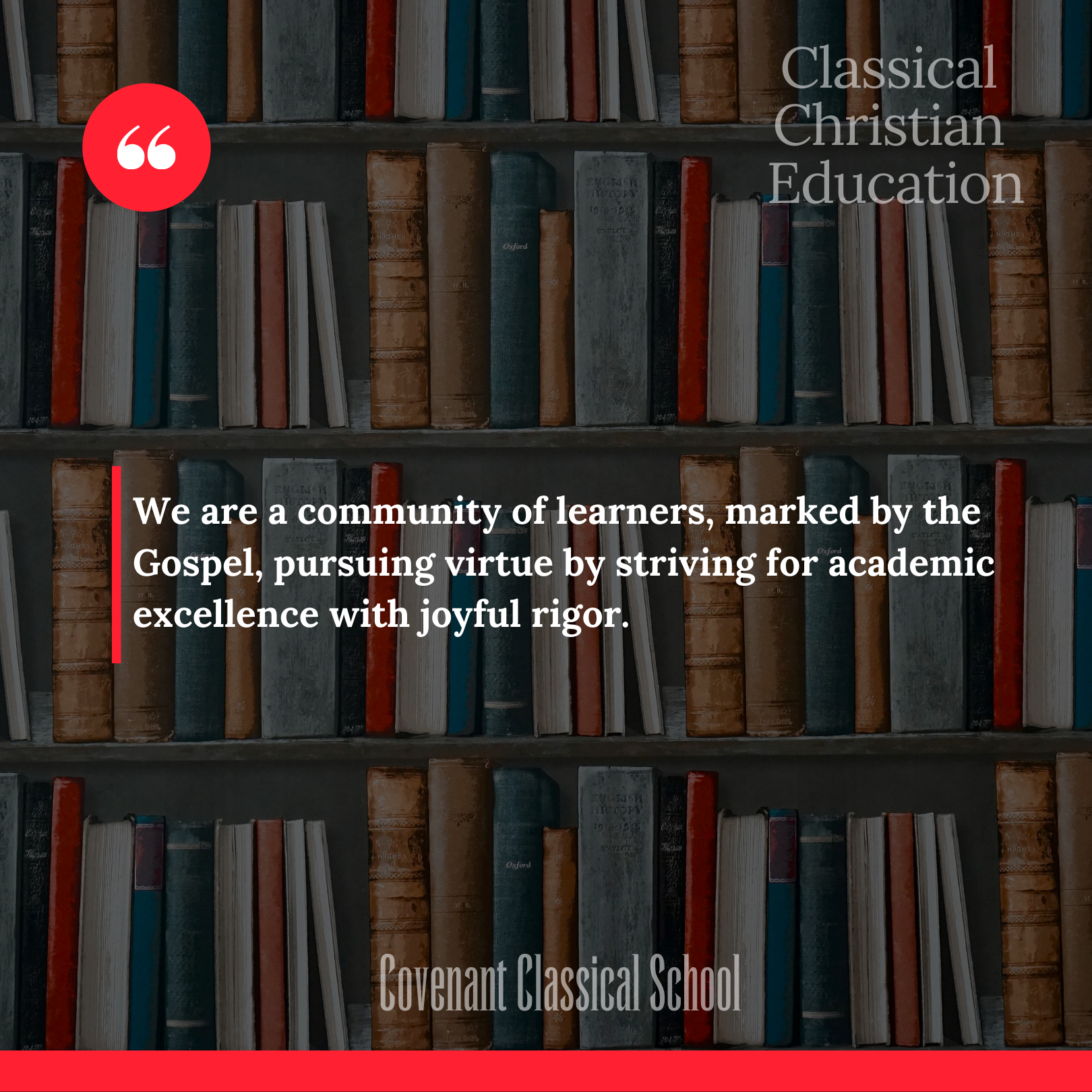
Rather than the view of teachers as completed experts and students as absorbers of the teachers' words, our school has a hierarchy of learning. Our teachers are continually studying and learning themselves. They model what a love of learning looks like.
Christian paideia is cultivated through a lived-out gospel in the classroom. The Bible is not limited to a Bible class but is integrated into all subjects as the lens by which we view the world. It is worthy of being memorized, studied, understood, and applied.
We impart a work ethic that promotes joy as our students accomplish great things; however, few worthwhile things come easy. Rigor, as we define it, is “sustained attention to a worthwhile pursuit."
Finally, Classical Christian schools model a world based on God's authority. Authority flows from God and his Word to churches, parents, and human government as God ordained it. We operate under the principle of in loco parentis, which means by extension, authority flows on to the school and the teachers. Our Christian beliefs about the nature of God, the nature of man, and the nature of the created world inform our practices.
We are a community of learners, marked by the Gospel, pursuing virtue by striving for academic excellence with joyful rigor.
Join us for Part 3 as we circle back to the beginning: “Begin with the end in mind”. We will hear some of our alumni share how Classical Christian Education has prepared them for life.

